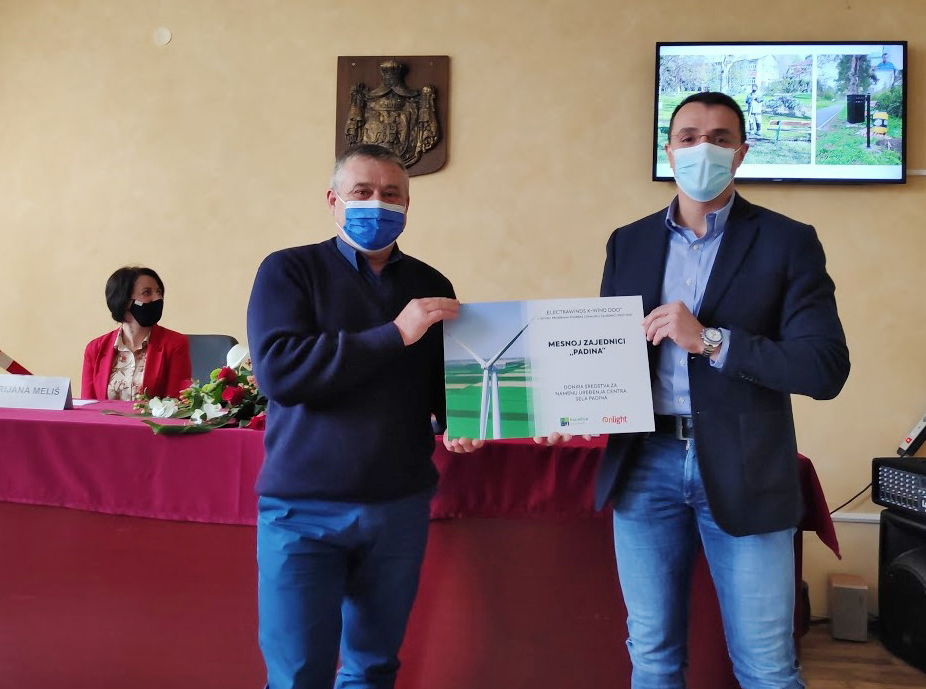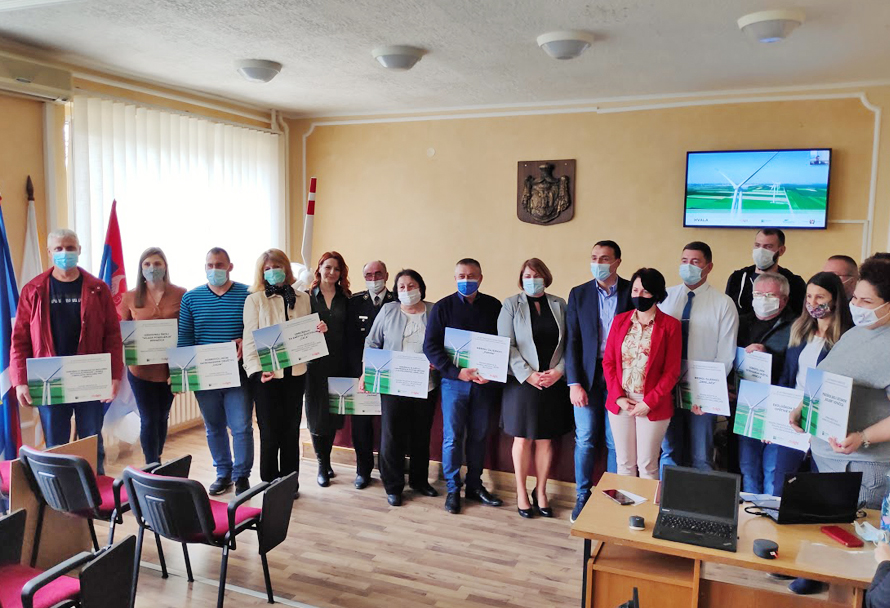
As a company whose job is the development of power plants that use renewable energy sources as their resource, we realised very early on that the perception of the project by the local community mainly depends on the relation of the investor with that local community. We strongly believe that the investor should implement ESG values through all aspects of the project development (through taxes, fees, reimbursements, etc.), apart from the obligatory financial contribution to the local community.
Led by the idea to help a wider range of organisations and support quality and useful projects that will, as a consequence, contribute to the improvement of the quality of life in the local community, we arranged a Local Community Support Programme. The reason we opted for this rather than for direct individual donations is that we wanted to make the competitions for funds available to everyone equally and to objectify the decision-making process of the allocation of funds.
The programme is designed to be repeated in two-year cycles, including the widest possible range of potential fund users, i.e. non-profit organisations from the territory of Kovačica Municipality, whose founder is the Republic of Serbia or a local government (e.g. local community offices, schools, day-care and preschool centres and healthcare institutions, as well as all other citizens associations and sports associations that are registered and perform their activities on the territory of Kovačica Municipality). There is also a wide range of purposes of donations for which the interested organisations can apply: protection and improvement of the environment, promotion of renewable energy sources, promotion and improvement of education, support for healthy upbringing of children and adolescents, personal development through sports activities and innovations in ecology.
Realisation of all supported projects so far has been a confirmation of success of the Programme and its main goals, as well as positive impacts that these projects create, many of them being long-term.
Special attention has been paid to assessing candidates’ suitability to be fund users financed from this project. The applicants must fulfil certain conditions in order to get shortlisted for funds, such as that they must be entered into the Serbian Business Registers Agency or another suitable register for longer than a year; another condition is that they do not have due and outstanding tax obligations, as well as that they are an organisation of non-profit character.
Competition applications are realised electronically, and upon closing the competition the Committee decides according to already prepared criteria. As a support to chosen projects, Donation Agreements are being concluded based on which the funds are being donated, the obligation being that the project is realised and the costs justified within a certain time period. There is a great interest in the donations given that there have been more than 70 different organisations that have applied so far naming different projects which are significant to the local community.
Activities of this sort, apart from the primary, provide certain significant secondary goals. An excellent confirmation is the example of Digital Literacy Programme of the local applicant organisation representatives, e.g. by introducing new way if communication and application submissions. This experience will be useful to representatives in the future, as well, should they apply for similar competitions.
Realisation of all supported projects so far has been a confirmation of success of the Programme and its main goals, as well as positive impacts that these projects create, many of them being long-term.
Positive impressions that this Programme has left confirm, by no means, that realisation of such activities and investments is useful and justified. The Programme has come across extremely good response in the local community. This type of Programme is applicable in different types of local communities during realisation of a variety of projects.

